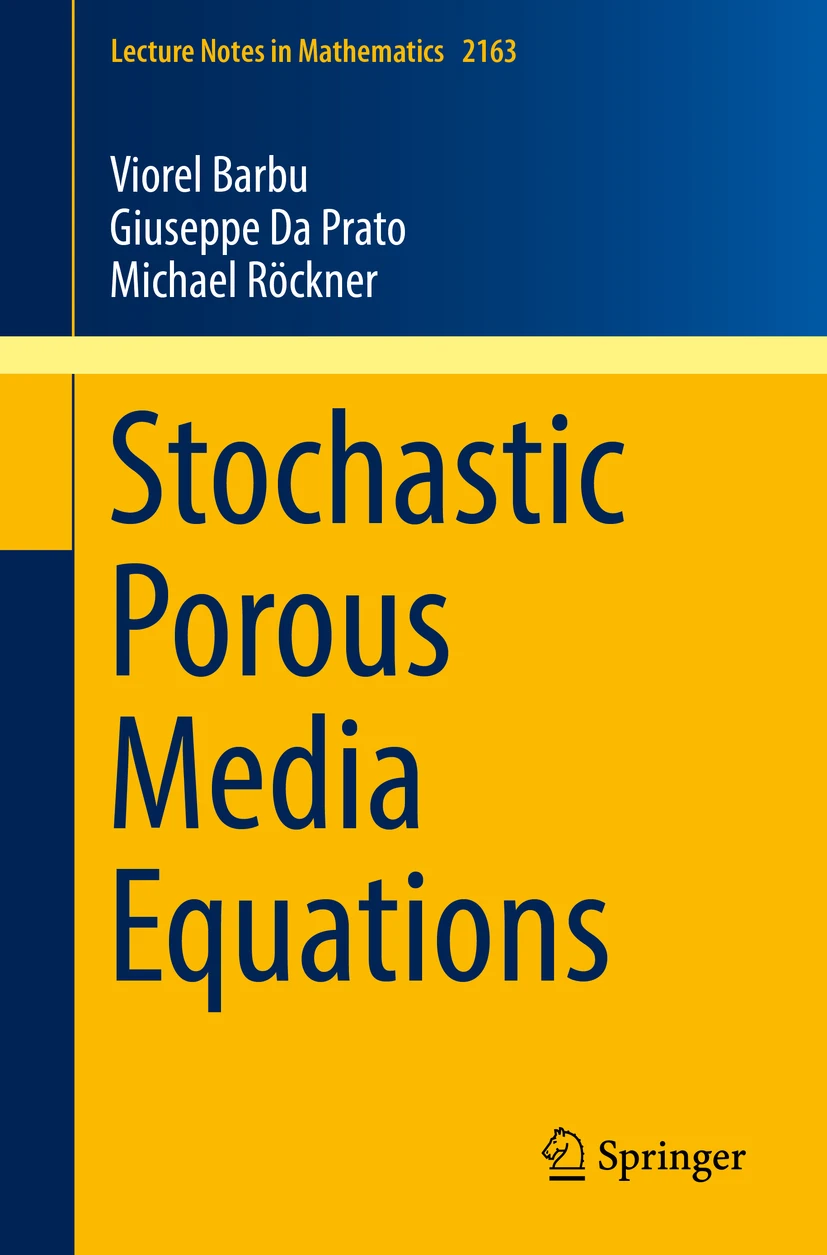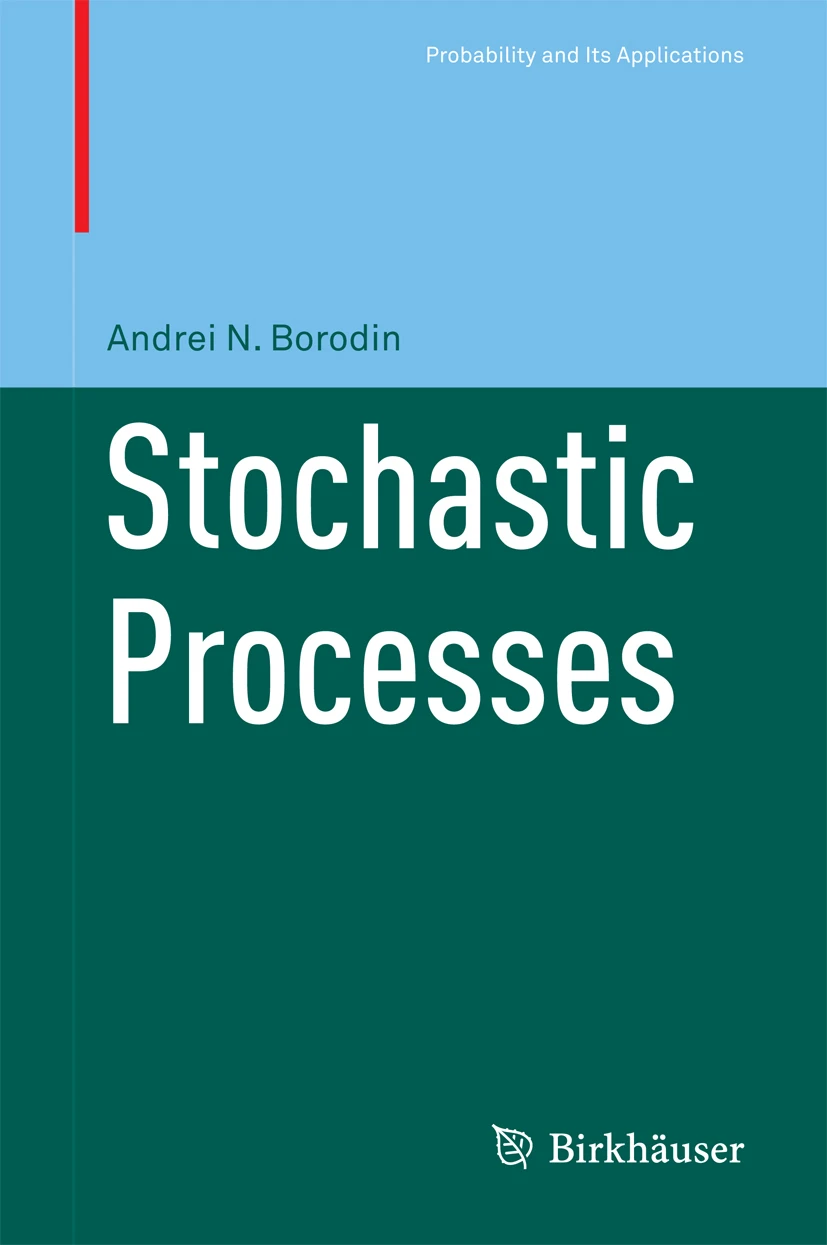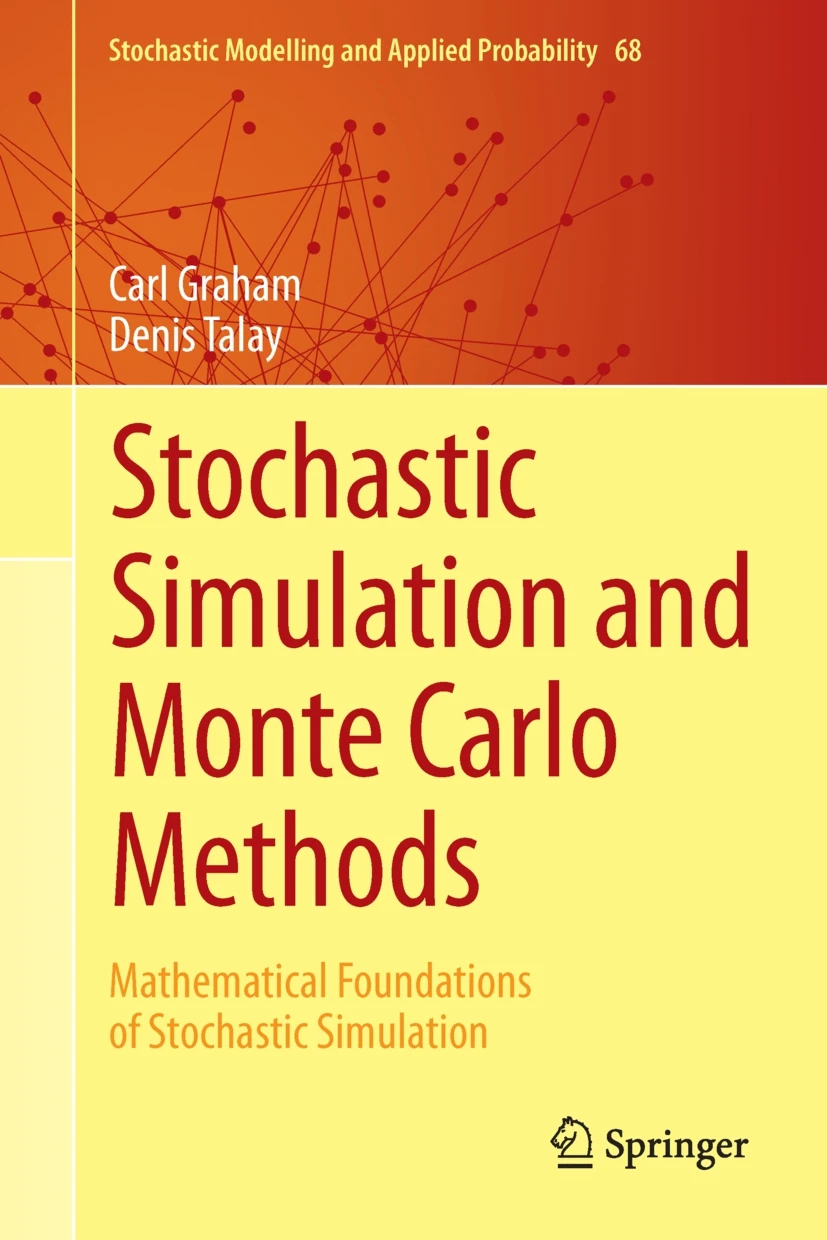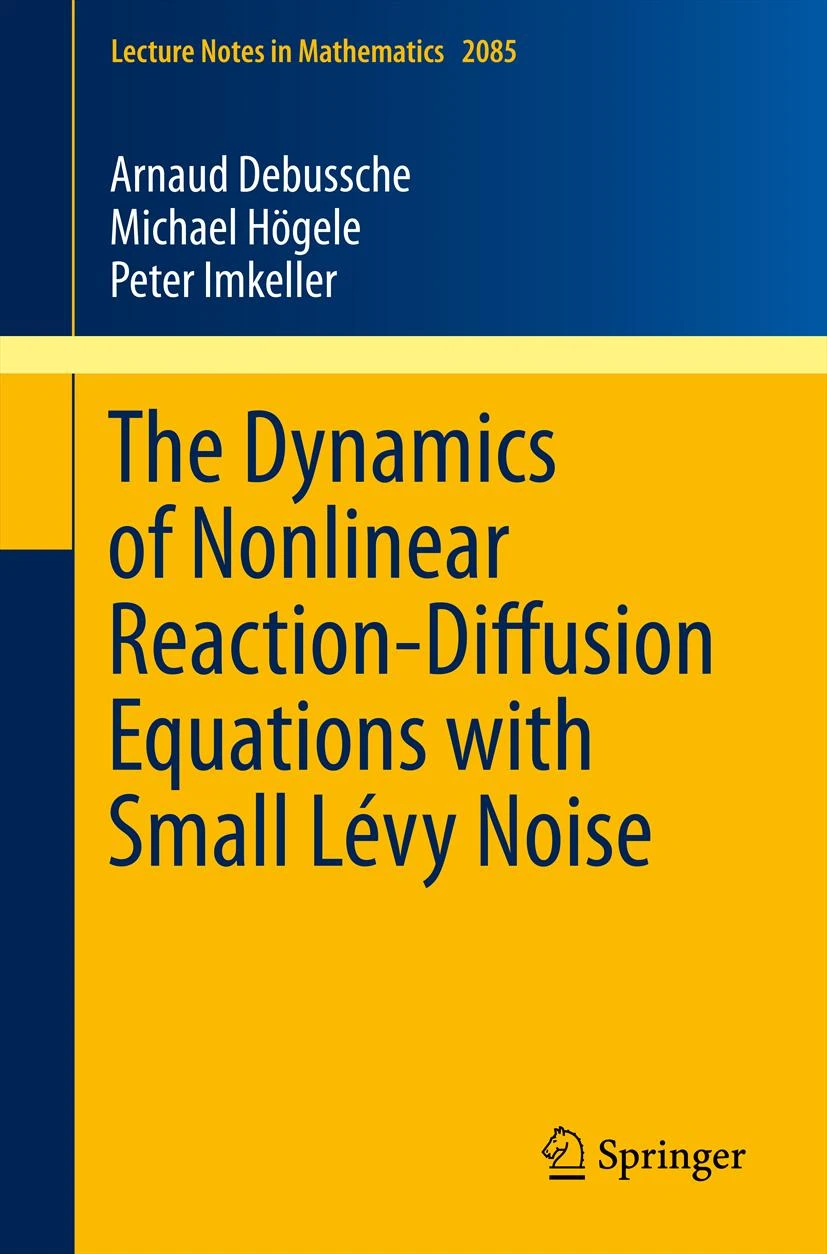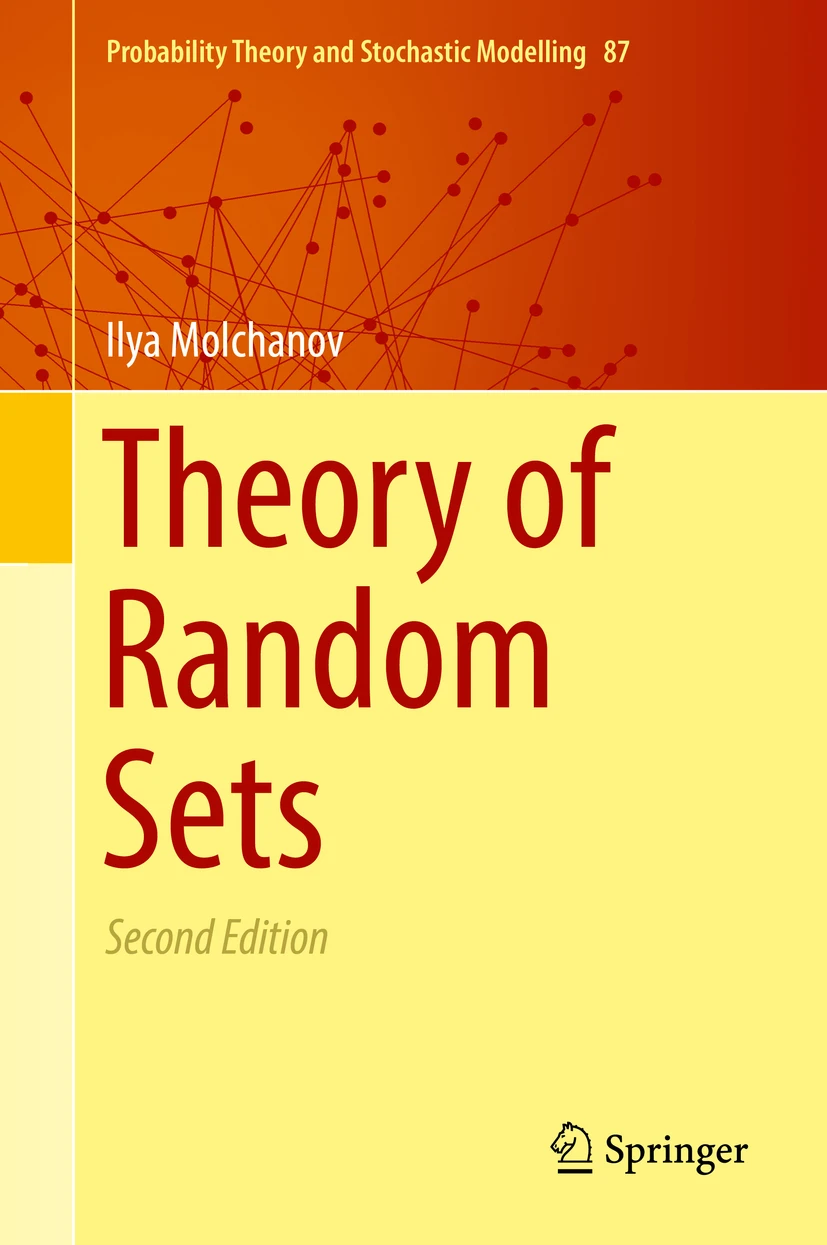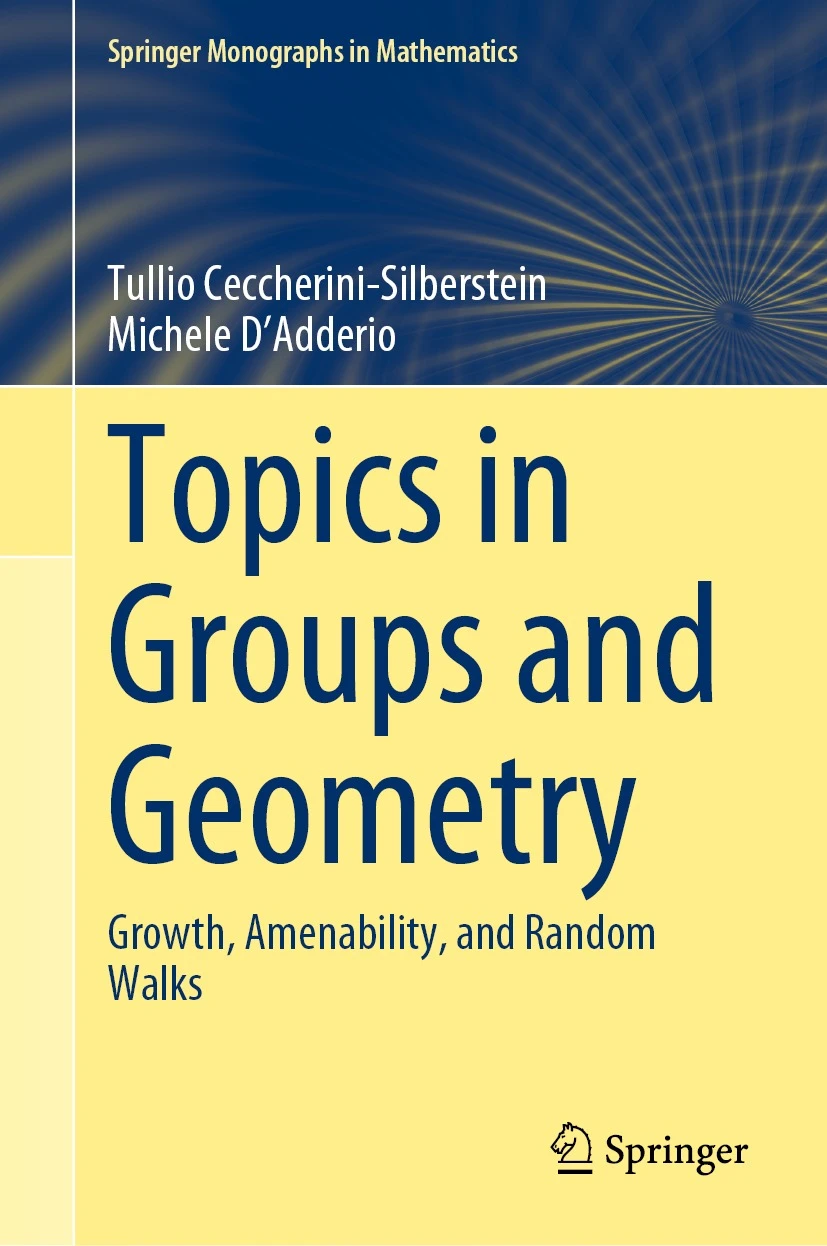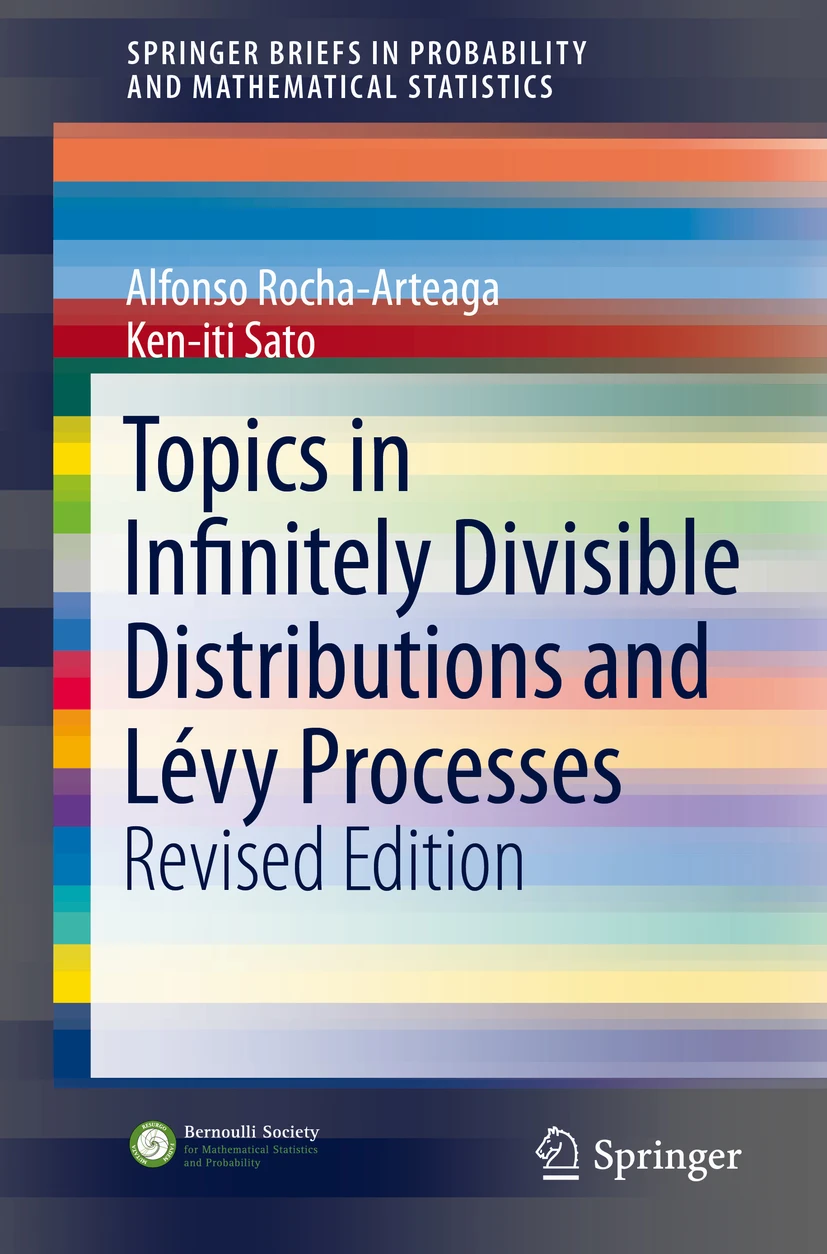-20%
Stochastic Porous Media Equations
Original price was: ₹5,511.00.₹4,410.00Current price is: ₹4,410.00.
This is the first book on stochastic porous media equations Concentrates on essential points, including existence, uniqueness, ergodicity and finite time extinction results Presents the state of the art of the subject in a concise, but reasonably self-contained way Includes both the slow and fast diffusion case, but also the critical case, modeling self-organized criticality
-20%
Stochastic Porous Media Equations
Original price was: ₹5,511.00.₹4,410.00Current price is: ₹4,410.00.
This is the first book on stochastic porous media equations Concentrates on essential points, including existence, uniqueness, ergodicity and finite time extinction results Presents the state of the art of the subject in a concise, but reasonably self-contained way Includes both the slow and fast diffusion case, but also the critical case, modeling self-organized criticality
-20%
Stochastic Processes
Original price was: ₹18,022.00.₹14,418.00Current price is: ₹14,418.00.
Gives a rigorous yet understandable presentation of the theory of stochastic processes Presents the theory of distributions of functionals of diffusions including local times, rarely found in literature Devotes serious attention to the Brownian local time Includes many examples and exercises Includes supplementary material: sn.pub/extras
-20%
Stochastic Processes
Original price was: ₹18,022.00.₹14,418.00Current price is: ₹14,418.00.
Gives a rigorous yet understandable presentation of the theory of stochastic processes Presents the theory of distributions of functionals of diffusions including local times, rarely found in literature Devotes serious attention to the Brownian local time Includes many examples and exercises Includes supplementary material: sn.pub/extras
-20%
Stochastic Simulation and Monte Carlo Methods: Mathematical Foundations of Stochastic Simulation
Price range: ₹4,410.00 through ₹6,078.00
Combines advanced mathematical tools and theoretical analysis of stochastic numerical methods at a high level Provides methods to reach optimal results on the accuracy of Monte Carlo simulations of stochastic processes Contains exercises in the text and problem sets of increasing demand at the end of each chapter ? Includes supplementary material: sn.pub/extras
-20%
Stochastic Simulation and Monte Carlo Methods: Mathematical Foundations of Stochastic Simulation
Price range: ₹4,410.00 through ₹6,078.00
Combines advanced mathematical tools and theoretical analysis of stochastic numerical methods at a high level Provides methods to reach optimal results on the accuracy of Monte Carlo simulations of stochastic processes Contains exercises in the text and problem sets of increasing demand at the end of each chapter ? Includes supplementary material: sn.pub/extras
-20%
The Dynamics of Nonlinear Reaction-Diffusion Equations with Small Lévy Noise
Original price was: ₹3,948.00.₹3,159.00Current price is: ₹3,159.00.
The comprehensive presentation serves as an excellent basis for a Master's course on stochastic partial differential equations(SPDEs) with Lévy noise The showcase character of this study provides particular insight into the methods developed and stimulates future research An additional chapter connects the mathematical results to its climatological motivation Includes supplementary material: sn.pub/extras
-20%
The Dynamics of Nonlinear Reaction-Diffusion Equations with Small Lévy Noise
Original price was: ₹3,948.00.₹3,159.00Current price is: ₹3,159.00.
The comprehensive presentation serves as an excellent basis for a Master's course on stochastic partial differential equations(SPDEs) with Lévy noise The showcase character of this study provides particular insight into the methods developed and stimulates future research An additional chapter connects the mathematical results to its climatological motivation Includes supplementary material: sn.pub/extras
-20%
The Risk Management of Contingent Convertible (CoCo) Bonds
Original price was: ₹6,033.00.₹4,827.00Current price is: ₹4,827.00.
Provides a primer on CoCo Bonds Gives an overview of pricing models for these hybrid instruments Describes how to risk-manage contingent convertibles using sophisticated cutting edge techniques
-20%
The Risk Management of Contingent Convertible (CoCo) Bonds
Original price was: ₹6,033.00.₹4,827.00Current price is: ₹4,827.00.
Provides a primer on CoCo Bonds Gives an overview of pricing models for these hybrid instruments Describes how to risk-manage contingent convertibles using sophisticated cutting edge techniques
-20%
The Sherrington-Kirkpatrick Model
Original price was: ₹12,809.00.₹10,248.00Current price is: ₹10,248.00.
Presents many central ideas of the mathematical theory of the Sherrington-Kirkpartrick model in detail Contains a fundamental breakthrough in this subject by the author Accessible to graduate students working in probability theory or statistical mechanics
-20%
The Sherrington-Kirkpatrick Model
Original price was: ₹12,809.00.₹10,248.00Current price is: ₹10,248.00.
Presents many central ideas of the mathematical theory of the Sherrington-Kirkpartrick model in detail Contains a fundamental breakthrough in this subject by the author Accessible to graduate students working in probability theory or statistical mechanics
-20%
Theory of Random Sets
Original price was: ₹18,022.00.₹14,418.00Current price is: ₹14,418.00.
Comprehensively covers the theory of random sets Explores interdisciplinary connections and applications of the theory Extensive and updated bibliography Includes latest developments in the field
-20%
Theory of Random Sets
Original price was: ₹18,022.00.₹14,418.00Current price is: ₹14,418.00.
Comprehensively covers the theory of random sets Explores interdisciplinary connections and applications of the theory Extensive and updated bibliography Includes latest developments in the field
-20%
Topics in Groups and Geometry: Growth, Amenability, and Random Walks
Price range: ₹7,329.00 through ₹10,248.00
Provides an introduction to geometric group theory based on the unifying theme of Gromov’s theorem Shows the connections between a wide range of topics in geometric group theory Collects together, for the first time, results previously scattered throughout the literature With a Foreword by Efim I. Zelmanov
-20%
Topics in Groups and Geometry: Growth, Amenability, and Random Walks
Price range: ₹7,329.00 through ₹10,248.00
Provides an introduction to geometric group theory based on the unifying theme of Gromov’s theorem Shows the connections between a wide range of topics in geometric group theory Collects together, for the first time, results previously scattered throughout the literature With a Foreword by Efim I. Zelmanov
-20%
Topics in Infinitely Divisible Distributions and Lévy Processes, Revised Edition
Original price was: ₹5,511.00.₹4,410.00Current price is: ₹4,410.00.
Includes useful notes at the end of each chapter as historical reviews and detailed information on the used sources Offers an interesting and enjoyable insight into the topics covered Presents framework of the selected topics in new approach Self-contained study on the relation of self-decomposable distributions with each of the selected topic
-20%
Topics in Infinitely Divisible Distributions and Lévy Processes, Revised Edition
Original price was: ₹5,511.00.₹4,410.00Current price is: ₹4,410.00.
Includes useful notes at the end of each chapter as historical reviews and detailed information on the used sources Offers an interesting and enjoyable insight into the topics covered Presents framework of the selected topics in new approach Self-contained study on the relation of self-decomposable distributions with each of the selected topic

